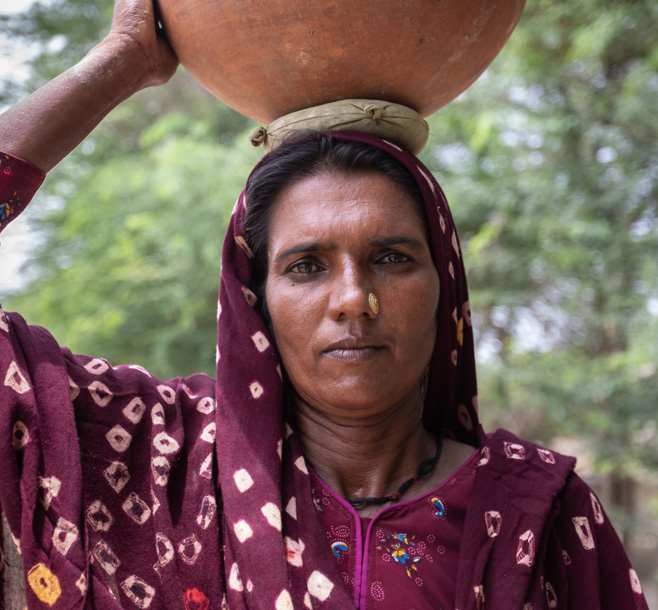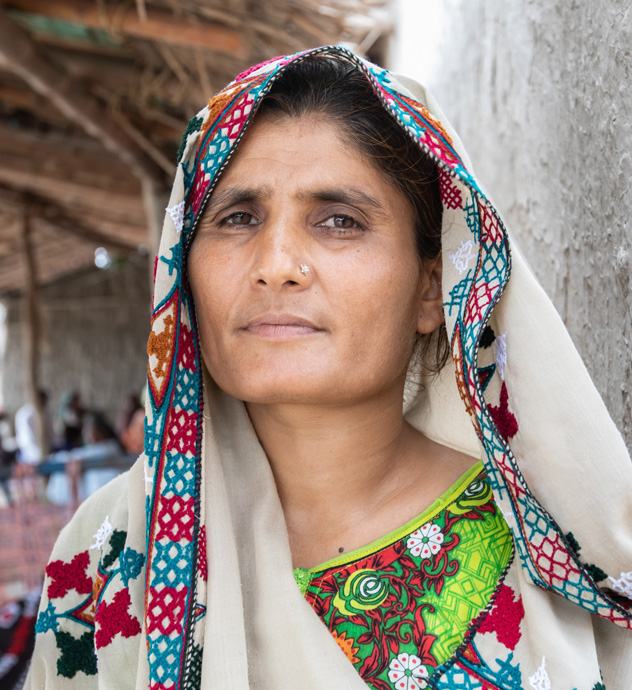In rural areas of Pakistan, clean water has become dangerously scarce and families have no choice but to drink dirty water – leading to disease, illness, and death.
Fatima lives in Sindh province, where only 1 in 5 people have access to safe, clean water.

Fatima remembers when there used to be an abundance of water and resources in her village.
But the climate crisis has changed all that - causing cyclones, floods, drought and sea water intrusion into water sources. Not only that, land owners are cutting off the flow of water to villages like Fatima's.
Combined together, these terrible conditions have created an acute clean water shortage for families like hers in Pakistan.
"We are forced to drink this water because we have no other option, yet we are fully aware that this water is making me and my family sick."
– Fatima, Pakistan
Fatima has to spend up to 16 hours every day fetching enough water just to sustain her family for a day
Access to water is of paramount importance for Pakistani women like Fatima, because they bear the primary responsibility for obtaining water. However, severe gender inequality means they are rarely involved in the decision-making when it comes to water rights.
"[In my village] people didn’t even know what their rights were or where they could raise their voice on these issues.”
– Fatima, Pakistan
Like Fatima, Hooran's world has been devastated by climate-induced disaster. Her family's livelihood was ruined after floods destroyed their land. And now as drought grips the country, they cannot get the clean water they need to survive.
"We are not getting the right amount of water we need to survive."
– Hooran, Pakistan

Photos by Khaula Jamil/OxfamAUS
Oxfam Australia (ABN: 18 055 208 636) is endorsed as a Deductible Gift Recipient. Donations of $2 or more to Oxfam are tax deductible in Australia. Oxfam Australia is a member of the Oxfam International confederation